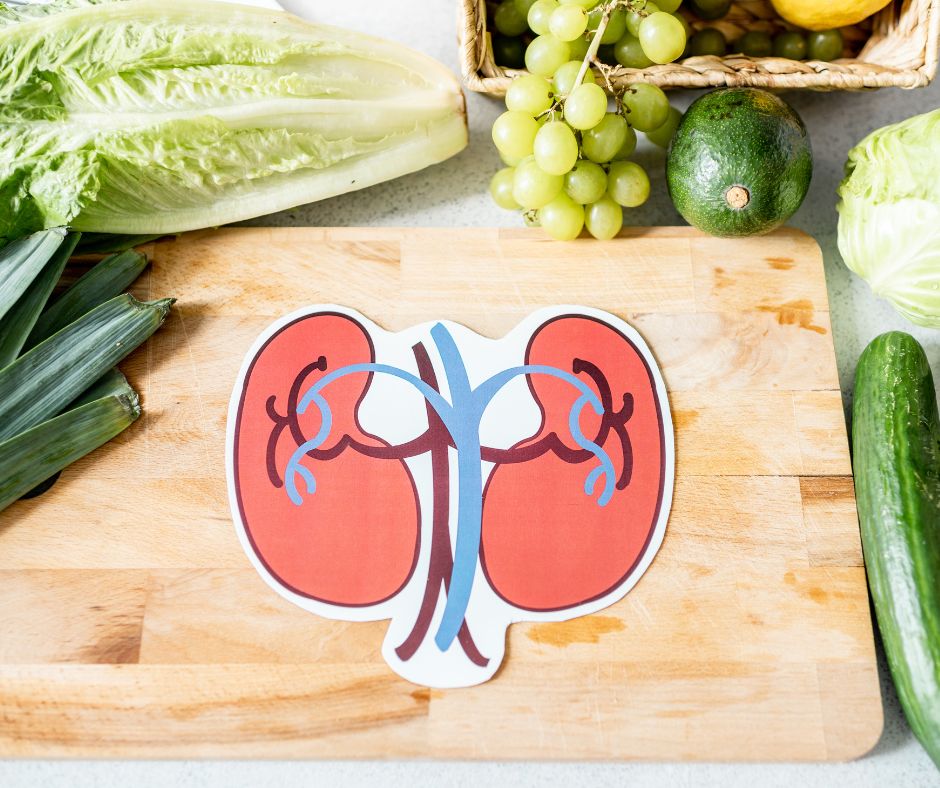As adults, it is important to be aware of our kidney health. Our kidneys are essential organs that help filter out waste and toxins from the blood. It is no surprise, then, that one of the best ways to take care of your kidneys is by making sure you get the right nutrients in your diet (and avoid the wrong ones). As March has national observances for both kidneys and nutrition, let’s explore how they combine to create a healthy kidney haven.
The Role of Nutrition in Kidney Health
Kidneys are responsible for filtering waste and toxins from our bodies, then removing these substances through urine. They also help your body maintain the right balance of nutrients and minerals to stay healthy. That’s why the foods you eat have a direct effect on your kidney health and function. The right healthy foods can make their job easier, while some foods can actually hinder your kidney health. Poor nutrition is actually a leading cause of kidney damage, as it can lead to high levels of toxins in the blood that cannot be filtered out by the kidneys.
A healthy diet also helps control high blood sugar and hypertension, the leading causes of chronic kidney disease. These conditions damage the kidney’s blood vessels, making it harder to filter your blood. Controlling these conditions and maintaining a healthy weight is an important way to support kidney health.
Sodium and Kidney Health
Consuming too much sodium can be detrimental to your kidneys because it increases blood pressure and makes it harder for your kidneys to filter out waste products from your body. Therefore, it’s important to limit your daily sodium intake to no more than 2,300 mg per day, or about 1 teaspoon of table salt. This means avoiding processed and packaged foods, as well as selecting low-sodium alternatives whenever possible.
Protein and Kidney Health
Protein is an important part of a healthy diet. But if your kidneys aren’t working properly, eating too much protein can overtax them. That’s because protein breaks down into waste that must be filtered through the kidneys. Experts recommend choosing healthy sources of protein – like lean meats, eggs, beans, and nuts – and staying mindful of portion sizes.
Phosphorus and Potassium
Phosphorus and Potassium are important minerals that support a variety of essential functions, from strengthening your bones to regulating your heartbeat. People with poor kidney function are at risk for having improper levels of these minerals in the blood, which can cause a host of health problems. If you have chronic kidney disease or another kidney condition, your doctor may ask you to limit or increase your intake of foods rich in these minerals. Phosphorus is found in processed foods, dark-colored drinks and animal protein; foods rich in potassium include fruits, vegetables, and dairy.
Fluids and Kidney Health
It’s also important to stay hydrated when trying to maintain good kidney health. Drinking plenty of fluids helps flush toxins from the body, which helps keep your kidneys functioning properly. However, some fluids can be damaging if consumed in excess, such as alcohol and caffeinated beverages like coffee or soda. Therefore, it’s best to drink mostly water throughout the day and limit other beverages when possible.
A healthy, nutritious diet is a staple for good kidney health. But eating well isn’t always easy, especially with conditions like diabetes or chronic kidney disease. From quality testing supplies to intermittent catheters, our specialty programs help make staying healthy a little easier by delivering your supplies right to your door. Visit us online to learn more.

